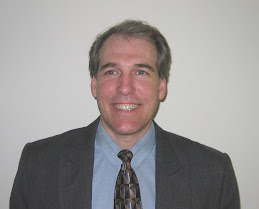After you have a bit of experience, driving a car becomes a
sort of second nature activity, like walking or chewing gum. We can do it pretty well even without
realizing that we are doing it. Over
time, especially without an accident or mishap to get our attention, we can all
develop an overconfidence about driving and our skill set whether we do it well
or not. Here then, is an opportunity
for you to honestly and fairly evaluate your own driving skills with the one
person that you can’t lie to: yourself.
Take a quick look at these top 5 driving mistakes that we all make from
time to time, and perhaps it can serve
as a reminder to avoid these driving behaviors.
One thing most of us forget is that the process of driving a
vehicle is usually the most dangerous activity that we will do in any given
day. Since we go years and years without
a mishap or accident it is easy to forget this.
But, whether you take notice of it or not, every time you get behind the wheel you are at
risk for making a mistake that could be catastrophic or even fatal for
you. So taking time every now and then
to honestly evaluate your own driving habits with yourself is a practice that might
save your life or the life of someone else.
One of the most common driving errors that many of us make
is following too closely. Some drivers use tailgaiting as a way of
emphasizing their hurry to the driver in front of them. Some people drive too closely to the car in
front of them simply as a matter of habit.
I’ve seen drivers who move right up to the next car in front of them,
regardless of their speed, not because
they are in a hurry, but because this is their default setting for how fast to
drive in any situation. When faced with
an open road ahead, these drivers are probably not sure just how fast they
should go. If you who commute to work on
a highway, and are forced to spend an extra half hour in traffic on the way
home, most of the time it is because someone ahead of you was following too
close.
Stopping instead of yielding. This
is a case of overly cautious behavior generating risk. Drivers make assumptions about what other
drivers will do based on assumed behavior.
Deviation from assumed behavior then puts other drivers at risk. The
most common place we see this is on the acceleration ramp for entering a
highway. Inexperienced drivers often
have trouble with this and simply come to a stop instead of blending into the
flow of the traffic on the highway. This
is dangerous, not only for the stopped car, but for the cars behind that are
not expecting a car in front of them to stop.
This is also sometimes a problem at traffic circles where a driver’s
attention should be on the cars to the left in the circle as opposed to the car
in front of them which they assume will not stop if the way is clear.
Trusting Your Mirrors.
I am guilty of this mistake from time to time. It takes more effort to look over your
shoulder when changing lanes, especially when you have checked all of your
mirrors and you don’t see anyone coming.
But if you have had the scary experience of starting to make a lane
change, only to hear the honking of the car beside you, then you will
understand just how dangerous it is not to take that backwards glance before
you change lanes. This is a habit that takes effort but could
save your life.
Failing to Yield on Green.
The green light means go of course, but some intersections seem to be
worse than others in terms of cars running the red light. Experience will help here but you should
always be cautious when moving through an intersection. Intersection accidents often result in
terrible injuries and you can avoid this by being more aware of everything
going on outside of the green light itself.
Multi-Tasking and driving.
This is one of my pet peeves. These days we think of cell phones but I
remember being frightened at all the things my wife would do while
commandeering a car with three small, demanding and often hungry children in
it. Now
I personally stopped using my phone in my car about 2 years ago. That’s
a personal choice of course but usually when I see someone driving poorly, when
I get closer I almost always notice that they have their phone in their hand. Keeping your focus on the driving that you
are engaged in could save your life or someone else’s, so really it is worth
the effort.
At Clinard
Insurance Group, we want all drivers on the road to finish their errands
and come home safely to their loved ones.
I hope these tips will help keep you aware of the importance of staying
engaged in your task of driving while you are operating a motor vehicle. If you would like help with your car
insurance, your home
insurance, your life
insurance or even your business
insurance, I hope you will give us a call, toll free, at 877-687-7557.


